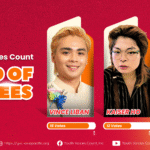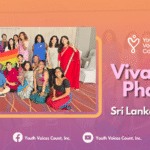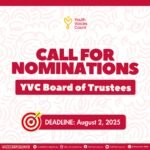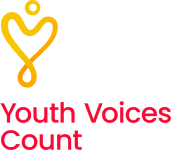By Heshan Niluminda
Being a young LGBTQ+ person in Sri Lanka was already fraught with challenges before the onset of the COVID-19 pandemic. However, the pandemic, coupled with the subsequent economic crisis, exacerbated these difficulties. In this article, I will delve into the hurdles and prospects that young LGBTQ+ individuals encounter in the post-COVID “new normal” in Sri Lanka.
Many of the struggles we faced before the pandemic persist. Bullying, harassment, and various violations are still rampant. Access to education and healthcare remains arduous, and finding job opportunities is a constant challenge. Moreover, we are at heightened risk for health crises like HIV. Most alarmingly, we are increasingly vulnerable to gender and sexual orientation-based violence.
Yet, the repercussions of COVID-19 and the ensuing economic downturn have ushered in a fresh set of obstacles. The loss of jobs has forced many young LGBTQ+ people to turn to transactional sex to survive. A lack of information on sexual and reproductive health, coupled with limited access to youth-friendly sexual and reproductive health and rights (SRHR) services, further complicates the situation. Without autonomy, young LGBTQ+ individuals may engage in unsafe sexual practices due to power imbalances. Their reluctance to seek regular SRHR services exacerbates their vulnerability to HIV.
Additionally, the post-COVID era has seen a surge in issues arising from prolonged family interactions during lockdowns. While gender-based violence and harassment within families have been reported, positive trends have also emerged, as some LGBTQ+ individuals have found greater acceptance within their families. However, disruptions in education due to family conflicts have placed immense pressure on the young LGBTIQ community, hindering their pursuit of higher education and professional development. The negative attitudes prevailing within families have affected not only the young LGBTIQ community’s education but also their mental health and personal growth during the pandemic and post-COVID period.
During the COVID-19 economic crisis, the government in Sri Lanka prioritized the import of essential medicines, resulting in a shortage of hormones crucial for transgender individuals. This shortage has created difficulties for transgender individuals seeking Gender Recognition Certificates (GRC) under the established system. Furthermore, the post-COVID era has witnessed hormonal imbalances and physical health issues among the transgender community due to the scarcity of hormones.
Consequently, many young LGBTQ+ individuals were caught between quarantine regulations and their family’s economic needs at the beginning of the post-COVID period. This compelled them to temporarily set aside their identities and contribute to their households, often leading to isolation from their community and separation from loved ones.
In conclusion, the challenges brought about by the aftermath of the COVID-19 pandemic underscore the urgent need for proactive measures to support the young LGBTIQ community. Collaborating with other LGBTQ, youth, and human rights organizations is critical for these efforts.
Providing access to counselling services to support young LGBTIQ individuals who have faced family-related challenges during the COVID-19 pandemic and continued identity-related issues in the post-COVID period is crucial. We need to devise a program aimed at reducing barriers to accessing essential hormone treatments and improving the access of transgender people to these services. It is imperative to expedite the process of obtaining gender recognition certificates for those who experienced delays during the pandemic and its aftermath. Creating educational opportunities for young LGBTIQ individuals, whose access to education was disrupted during and after the COVID-19 pandemic, is essential. Providing guidance and establishing pathways for developing professional skills for those who lost their jobs is equally vital. Similarly, it is important to also improve young people’s access to youth-friendly and sensitive sexual and reproductive health services using innovative methods to address the challenges brought by COVID-19.
Also want to be featured and have your articles posted? Send your articles here: secretariat@yvc-asiapacific.org







